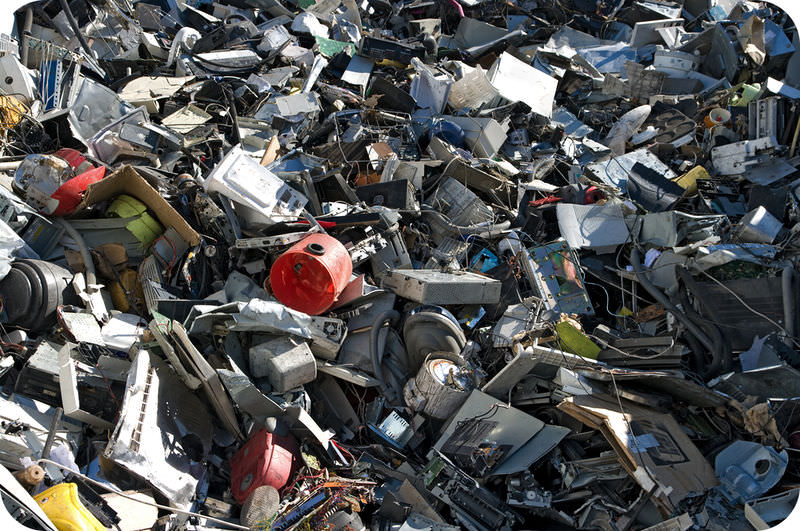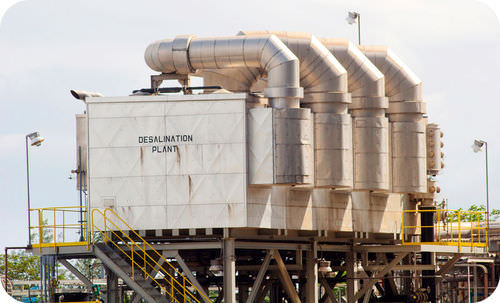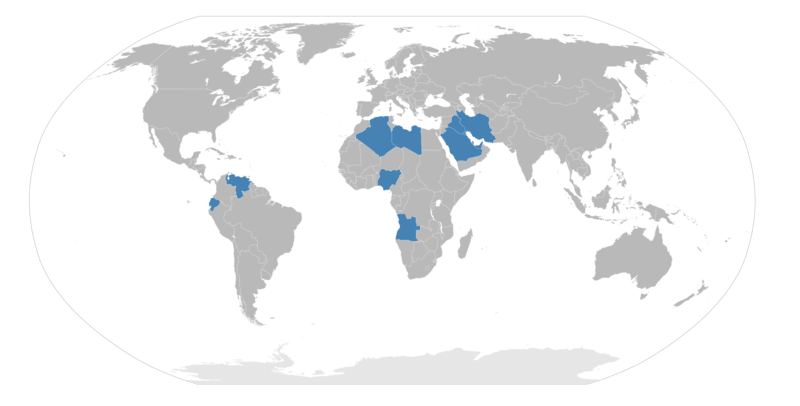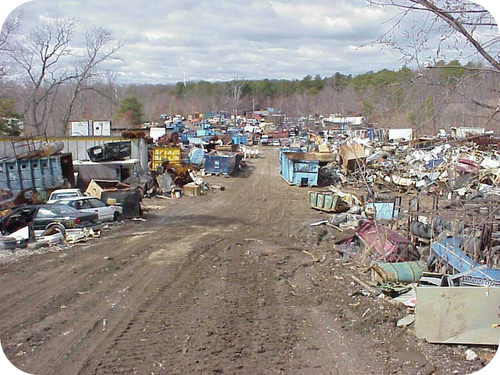
What is electronic waste?
We obtain resources of developing nations. We also dump waste on these nations. Many of our electronic wastes, which we think are being recycled, end up in developing countries. These are known as electronic waste or e-waste. People pick through the wastes looking for valuable materials that they can sell, but this exposes them to many toxic compounds that are hazardous to them and the environment.
Resource Availability
Supply
From the table in the concept "Materials Humans Use," you can see that many of the resources we depend on are non-renewable. Non-renewable resources vary in their availability; some are very abundant and others are rare. Materials, such as gravel or sand, are technically non-renewable, but they are so abundant that running out is no issue. Some resources are truly limited in quantity: when they are gone, they are gone, and something must be found that will replace them. There are even resources, such as diamonds and rubies, that are valuable in part because they are so rare.
Price
Besides abundance, a resource's value is determined by how easy it is to locate and extract. If a resource is difficult to use, it will not be used until the price for that resource becomes so great that it is worth paying for. For example, the oceans are filled with an abundant supply of water, but desalination is costly, so it is used only where water is really limited (Figure below). As the cost of desalination plants comes down, more will likely be built.

Tampa Bay, Florida, has one of the few desalination plants in the United States.
Politics
Politics is also part of determining resource availability and cost. Nations that have a desired resource in abundance will often export that resource to other countries, while countries that need that resource must import it from one of the countries that produces it. This situation is a potential source of economic and political trouble.
Of course the greatest example of this is oil. Twelve countries have approximately 80% of all of the world’s oil (Figure below). However, the biggest users of oil, the United States, China, and Japan, are all located outside this oil-rich region. This leads to a situation in which the availability and price of the oil is determined largely by one set of countries that have their own interests to look out for. The result has sometimes been war, which may have been attributed to all sorts of reasons, but at the bottom, the reason is oil.
@@license="Public Domain"

The nations in blue are the 12 biggest producers of oil; they are Algeria, Angola, Ecuador, Iran, Iraq, Kuwait, Libya, Nigeria, Qatar, Saudi Arabia, the United Arab Emirates, and Venezuela.
Waste
The topic of overconsumption was touched on in the chapter Life on Earth. Many people in developed countries, such as the United States and most of Europe, use many more natural resources than people in many other countries. We have many luxury and recreational items, and it is often cheaper for us to throw something away than to fix it or just hang on to it for a while longer. This consumerism leads to greater resource use, but it also leads to more waste. Pollution from discarded materials degrades the land, air, and water (Figure below).
@@license="Public Domain"

Pollution from discarded materials degrades the environment and reduces the availability of natural resources.
Natural resource use is generally lower in developing countries because people cannot afford many products. Some of these nations export natural resources to the developed world since their deposits may be richer and the cost of labor lower. Environmental regulations are often more lax, further lowering the cost of resource extraction.
Summary
The availability of a resource depends on how much of it there is and how hard it is to extract, refine, and transport to where it is needed.
Politics plays an important role in resource availability since an unfavorable political situation can make a resource unavailable to a nation.
Increased resource use generally means more waste; electronic waste from developed nations is a growing problem in the developing world.

No comments:
Post a Comment